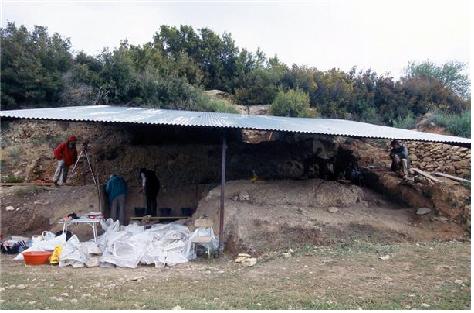A study carried by the Universitat Rovira i Virgili in conjunction with the Catalan Institute of Human Paleoecology and Social Evolution (IPHES) indicates that recycling was practiced by humans as early as 13,000 years ago.

Temporal nature and recycling of Upper Paleolithic artifacts: the burned tools from the Molí del Salt site(Credit: M. Vaquero et al)
The premise of the study findings are the burnt artefacts discovered at the Molí del Salt site situated at Tarragona in Spain. The period being referenced is called the Upper Paleolithic Age. The artefacts discovered are made of stone. There has not been much research carried out on the practice of recycling in the Prehistoric ages owing to the challenges in validating the existence of these practices through archaeological records. The new study has however gathered evidence to this effect.
According to Manuel Vaquero, researcher at the Universitat Rovira i Virgili, the evidence for recycling is established by differentiating the two phases pertaining to the manipulation of an object for recycling. These are the instance of time prior to modification and that immediately after modification. This is the first time a study of this nature has been initiated.
The burnt artefacts were used to determine if the exposure to fire caused any changes to the shape of the artefacts. The results of the study indicate that there are no records of recycled artefacts similar to the ones in existence for other types of artefacts. It implies that recycling was more common for tools employed for domestic use with immediate necessity. The study also indicates that tools meant for hunting were never recycled and only those that are simple in geometry and readily available were recycled.
The practice of recycling could have had economic significance during those times too as it meant an increased supply of resources even under scarce conditions. Recycling also would have reduced the necessity for humans to travel far from their camp sites in search of new resources.
Disclaimer: The views expressed here are those of the author expressed in their private capacity and do not necessarily represent the views of AZoM.com Limited T/A AZoNetwork the owner and operator of this website. This disclaimer forms part of the Terms and conditions of use of this website.